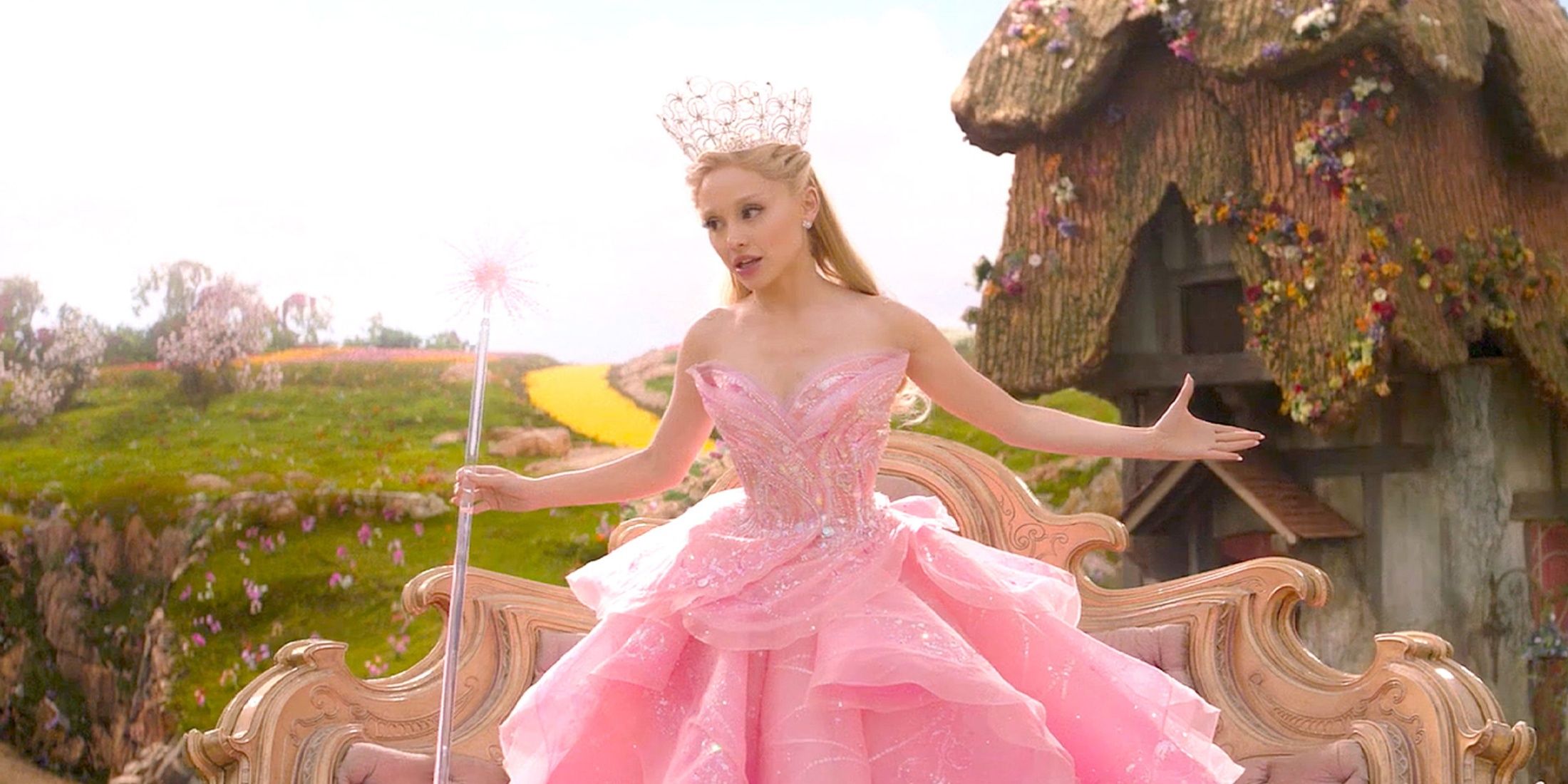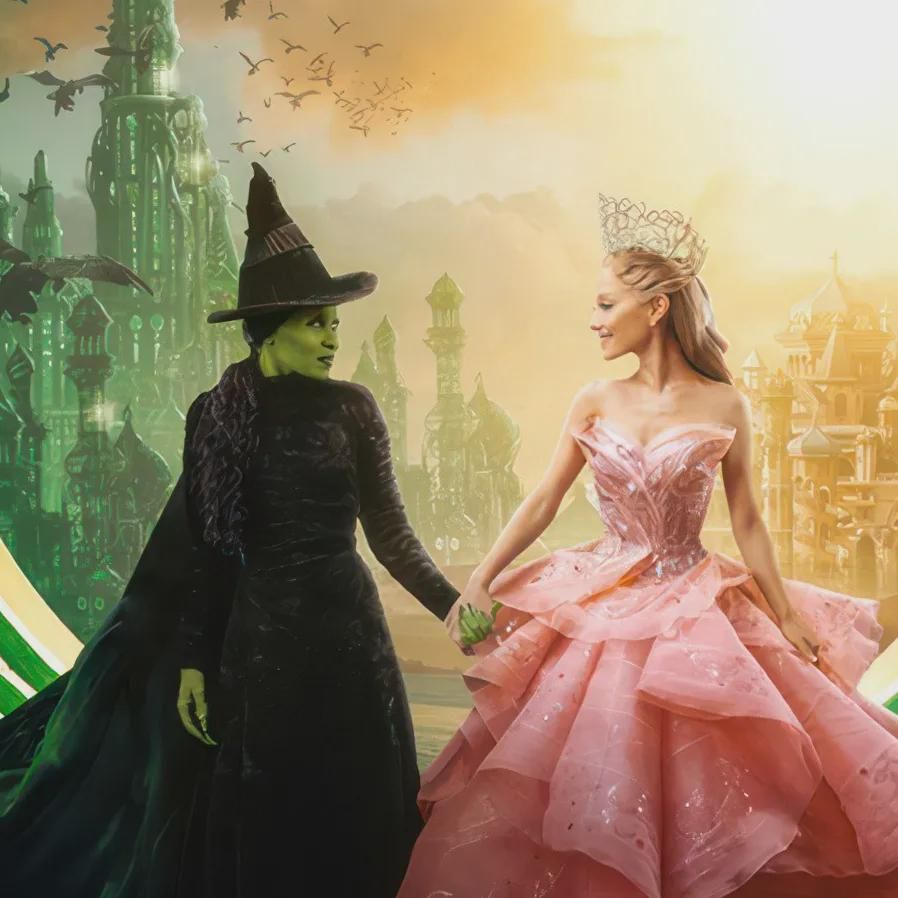Let’s just cut straight to the chase here. If you’ve ever been into musicals, or even if you’re just a fan of stories that flip the script on what we think we know, you’ve probably heard the phrase "no one mourns the wicked" at least once in your life. It’s not just a catchy line from a hit Broadway show—it’s a statement that gets us thinking about the way we view good and evil, heroes and villains, and everything in between. This is the kind of stuff that keeps us up at night, wondering why we’re so fascinated by the bad guys sometimes. So buckle up, because we’re diving headfirst into this topic and exploring why it resonates with so many of us.
Now, you might be asking yourself, “Why does this phrase even matter?” Well, here’s the deal: it’s more than just a clever lyric. It’s a reflection of how we perceive the world and the people in it. Think about it—how often do we judge someone before we even know their story? How often do we label someone as “wicked” without understanding what led them down that path? This phrase challenges us to look deeper, to question the narratives we’ve been fed, and to maybe—just maybe—have a little empathy for the people we’ve written off as irredeemable.
And let’s not forget the cultural impact this phrase has had. From its origins in the world of musical theater to its place in modern pop culture, it’s become a symbol of questioning authority, rethinking our assumptions, and finding the humanity in everyone—even the so-called villains. So whether you’re a die-hard fan of the musical or just someone who’s curious about why this phrase keeps popping up everywhere, we’ve got a lot to unpack. Let’s get into it.
Read also:Parvati Shallow Net Worth
Table of Contents
- The Origin of "No One Mourns the Wicked"
- Understanding the Context Behind the Phrase
- The Role of the Musical Wicked
- The Philosophy Behind the Statement
- Why We Love Our Villains
- Empathy and the Human Condition
- The Cultural Impact of the Phrase
- The Psychology of Perceiving Evil
- Modern Interpretations and Applications
- Wrapping It All Up
The Origin of "No One Mourns the Wicked"
Alright, let’s start at the beginning. The phrase "no one mourns the wicked" first gained prominence through the smash-hit musical Wicked, which premiered on Broadway in 2003. Based on Gregory Maguire’s novel Wicked: The Life and Times of the Wicked Witch of the West, the musical tells the untold story of Elphaba, the infamous green-skinned witch from The Wizard of Oz. But here’s the twist—Elphaba isn’t the villain we thought she was. She’s a complex character with a backstory that makes you question everything you thought you knew about her.
The song “No One Mourns the Wicked” is performed early in the show, and it sets the tone for the entire narrative. It’s a moment where the citizens of Oz celebrate the supposed death of the Wicked Witch, chanting the phrase with a mix of joy and relief. But as the story unfolds, we realize that the truth is far more complicated than what the public believes. This phrase becomes a powerful reminder of how easy it is to demonize someone without knowing their full story.
From Page to Stage
Gregory Maguire’s novel was already groundbreaking when it was published in 1995, offering a fresh perspective on a classic tale. But it wasn’t until the musical adaptation that the phrase truly took off. The show’s runaway success introduced millions of people to Elphaba’s story and made "no one mourns the wicked" a household name. It’s one of those rare instances where art doesn’t just reflect reality—it shapes how we think about it.
Understanding the Context Behind the Phrase
So, what exactly does "no one mourns the wicked" mean? At its core, it’s a commentary on how society tends to dehumanize those it perceives as evil. When someone is labeled as “wicked,” they’re often stripped of their humanity and reduced to a one-dimensional caricature. The phrase highlights the danger of this mindset, reminding us that even the people we deem irredeemable have stories worth hearing.
Think about it this way: how often do we jump to conclusions about someone based on limited information? We see someone do something bad, and suddenly they’re labeled as a villain with no hope of redemption. But the truth is, most people aren’t purely good or purely evil. There’s always a gray area, and that’s where the complexity—and the humanity—lies.
Breaking Down the Phrase
Let’s break it down a little further. The word “wicked” itself carries a lot of weight. It’s a loaded term that evokes images of darkness, danger, and moral corruption. But when we use it to describe someone, are we really considering the full picture? Are we taking into account the circumstances that led them to where they are? The phrase "no one mourns the wicked" challenges us to do just that—to look beyond the surface and see the person behind the label.
Read also:Emily Carriveau Divorce Filing
The Role of the Musical Wicked
There’s no denying that the musical Wicked played a huge role in popularizing the phrase "no one mourns the wicked". But what makes this show so special? For starters, it’s a masterclass in storytelling. It takes a familiar tale and flips it on its head, forcing us to reconsider everything we thought we knew. And let’s not forget the music—Stephen Schwartz’s score is absolutely iconic, with songs like “Defying Gravity” and “For Good” becoming instant classics.
But more than that, Wicked resonates with audiences because it tackles universal themes. It’s about friendship, identity, and the struggle to find your place in the world. It’s about standing up for what’s right, even when it’s hard. And, of course, it’s about the idea that people are more than the labels society assigns them.
Why Wicked Still Matters
Even years after its debut, Wicked remains one of the most beloved musicals of all time. It’s been performed in dozens of countries, translated into multiple languages, and seen by millions of people around the world. Why? Because it speaks to something deep within us—a desire to understand, to connect, and to see the world from a different perspective. The phrase "no one mourns the wicked" is just one example of how the show continues to inspire and provoke thought.
The Philosophy Behind the Statement
On a philosophical level, "no one mourns the wicked" raises some pretty profound questions. What does it mean to be “wicked”? Is it possible to redeem someone who’s been labeled as evil? And, most importantly, how do we decide who deserves empathy and who doesn’t?
These are questions that have been debated by philosophers, theologians, and psychologists for centuries. From Plato to Nietzsche, thinkers have grappled with the nature of good and evil and the complexities of human behavior. The phrase challenges us to join that conversation and consider our own beliefs about morality and justice.
Exploring the Gray Areas
One of the most fascinating aspects of the phrase is how it highlights the gray areas in life. We like to think of the world in black-and-white terms—good versus evil, right versus wrong—but the truth is far more nuanced. People are capable of both great kindness and great cruelty, often at the same time. The phrase "no one mourns the wicked" reminds us to embrace that complexity and resist the urge to oversimplify.
Why We Love Our Villains
Let’s be real for a second—villains are kind of awesome. Sure, they might do some pretty terrible things, but there’s something undeniably compelling about them. Maybe it’s their confidence, their charisma, or the fact that they’re not afraid to break the rules. Whatever the reason, we can’t seem to get enough of them.
Take Elphaba, for example. On paper, she’s the quintessential villain—the green-skinned witch who’s feared by everyone. But when we learn her story, we see her in a completely different light. She’s smart, passionate, and fiercely independent. She fights for what she believes in, even when it costs her everything. And that’s why we love her—because she’s complex, flawed, and so much more than just a “wicked witch.”
What Makes a Villain Memorable?
Not all villains are created equal. The ones we remember are the ones who challenge our assumptions and make us question our own beliefs. Think about characters like Darth Vader, Hannibal Lecter, or even Voldemort. They’re not just evil for the sake of being evil—they have motivations, backstories, and depth that make them compelling. The same goes for Elphaba. Her complexity is what makes her so unforgettable.
Empathy and the Human Condition
At its heart, the phrase "no one mourns the wicked" is a call to empathy. It’s a reminder that everyone has a story, and that understanding someone’s journey can change the way we see them. Empathy is a powerful force—it allows us to connect with others, even those we might initially view as “other.”
But empathy isn’t always easy. It requires us to step outside our own perspective and see the world through someone else’s eyes. It asks us to confront uncomfortable truths and challenge our own biases. And that’s why it’s so important. In a world that often feels divided, empathy is the bridge that brings us together.
Practicing Empathy in Everyday Life
So how do we put empathy into action? It starts with listening—really listening—to the people around us. It means asking questions instead of making assumptions. It means being open to different perspectives and willing to change our minds when presented with new information. And it means recognizing that everyone, no matter how “wicked” they may seem, deserves to be seen as a human being.
The Cultural Impact of the Phrase
It’s hard to overstate the cultural impact of "no one mourns the wicked". From its origins in Wicked to its place in modern pop culture, the phrase has become a symbol of questioning authority, rethinking assumptions, and finding the humanity in everyone. It’s been referenced in countless movies, TV shows, and books, and it’s even inspired real-world movements for social justice.
Why does it resonate so deeply with people? Because it speaks to a universal truth: we all want to be understood. We all want to be seen for who we truly are, not just the labels others assign us. The phrase reminds us that everyone deserves a second chance—and sometimes, all it takes is someone willing to listen.
A Symbol of Change
In a world that often feels polarized, the phrase "no one mourns the wicked" offers a glimmer of hope. It’s a reminder that change is possible—that people can grow, learn, and evolve. And it’s a call to action, urging us to be the ones who make that change happen. Whether it’s through art, activism, or simply everyday interactions, we have the power to create a more empathetic, compassionate world.
The Psychology of Perceiving Evil
From a psychological perspective, the way we perceive “evil” is fascinating. Our brains are wired to categorize people as either good or bad, friend or foe. It’s a survival mechanism that helped our ancestors navigate the world, but in modern times, it can lead to oversimplification and bias.
When we label someone as “wicked,” we’re essentially writing them off as beyond redemption. But the reality is, most people aren’t purely good or purely evil. They’re a mix of both, shaped by their experiences, choices, and circumstances. The phrase "no one mourns the wicked" challenges us to recognize that complexity and approach others with a more open mind.
Breaking Down Biases
One of the biggest hurdles to empathy is bias. We all have them—implicit assumptions about people based on their appearance, behavior, or background. But these biases can cloud


